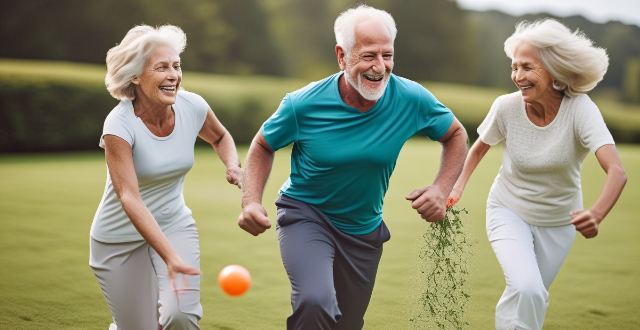Exercise plays a crucial role in maintaining the health and well-being of older adults. Regular physical activity can significantly improve their quality of life by preventing diseases, promoting longevity, and enhancing mental health. This text discusses the various benefits of exercise for seniors, including improvements in strength, endurance, mobility, balance, chronic disease management, stress reduction, emotional health, cognitive functioning, social interaction, independence, and overall quality of life. Engaging in regular physical activity is one of the most effective ways for seniors to maintain a healthy and fulfilling lifestyle as they age.

Exercise and Its Benefits for Older Adults
Introduction to the Importance of Exercise for Seniors
Exercise is a crucial element in maintaining health, especially as individuals age. For older adults, physical activity can significantly improve quality of life, prevent diseases, and promote longevity. This section explores why exercise is essential for seniors and how it contributes to their overall well-being.
Physical Health Enhancements
Strength and Endurance
- Building Muscle Mass: Resistance exercises help in counteracting age-related muscle loss, known as sarcopenia.
- Improving Stamina: Aerobic activities boost cardiovascular health and increase endurance, allowing seniors to perform daily tasks with less fatigue.
Mobility and Balance
- Enhancing Flexibility: Stretching and flexibility exercises reduce the risk of muscle and joint injuries.
- Improving Balance: Specific balance exercises can prevent falls, a common and often severe issue among the elderly.
Chronic Disease Management
- Diabetes: Regular exercise helps control blood sugar levels by improving insulin sensitivity.
- Heart Disease: Cardiovascular workouts strengthen the heart and lower blood pressure.
- Osteoporosis: Weight-bearing exercises increase bone density, reducing the risk of fractures.
Mental Health and Cognitive Functioning
Mental Well-being
Stress Reduction
- Releasing Endorphins: Exercise stimulates the production of endorphins, which act as natural painkillers and mood elevators.
- Reducing Anxiety: Physical activity can decrease symptoms of anxiety and promote relaxation.
Emotional Health
- Boosting Self-esteem: Achieving fitness goals can enhance self-confidence and self-worth.
- Fighting Depression: Exercise has been shown to be an effective treatment for mild to moderate depression in older adults.
Cognitive Advantages
Brain Health
- Increasing Cognitive Function: Exercise stimulates brain plasticity, leading to improved memory and thinking skills.
- Reducing Cognitive Decline: Regular physical activity may delay the onset or slow the progression of dementia and Alzheimer's disease.
Social Interaction and Quality of Life
Community and Support
Group Activities
- Joining Classes: Fitness classes provide opportunities for socialization and peer support.
- Participating in Sports: Seniors can engage in team sports like bowling or golf, fostering camaraderie and friendly competition.
Independence and Autonomy
- Maintaining Independence: By improving strength and mobility, exercise enables seniors to live independently for longer periods.
- Enhancing Life Enjoyment: Active seniors often report higher satisfaction with life and increased enthusiasm for daily activities.
Conclusion: The Comprehensive Impact of Exercise on Aging
In summary, exercise provides a wide range of benefits for older adults, from physical health enhancements to mental well-being and cognitive advantages. It also plays a crucial role in promoting social interaction, independence, and overall quality of life. Engaging in regular physical activity is one of the most effective ways for seniors to maintain a healthy and fulfilling lifestyle as they age.